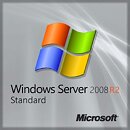- Joined
- Aug 19, 2017
- Messages
- 3,220 (1.12/day)
Microsoft's Windows Server 2008 and 2008 R2 customers still represent a large group, as Microsoft has announced an additional year of Extended Security Updates (ESU) with a caveat. Only available for Microsoft Azure customers, the ESU program will allow Windows Server 2008 and R2 users on Azure cloud to get security updates until January 9, 2024. By no means is this not a free program, and Microsoft will bill this extensively as it is available internationally. Many customers are forced to join the ESU program for their Windows Server 2008 and R2 systems, as upgrading the OS to the latest version is not always possible without significant downtime or a hardware update.
The following customer base has legibility to the fourth year of the ESU program:

View at TechPowerUp Main Site | Source
The following customer base has legibility to the fourth year of the ESU program:
- Windows Server 2008 R2 Service Pack 1 (SP1)
- Windows Server 2008 Service Pack 2 (SP2)
- Windows Embedded POSReady 7
- Windows Embedded Standard 7
- All Azure virtual machines (VMs) running Windows Server 2008 R2 and Windows Server 2008 operating systems on Azure, Azure Stack, Azure VMWare Solutions, or Azure Nutanix Solution.

View at TechPowerUp Main Site | Source



